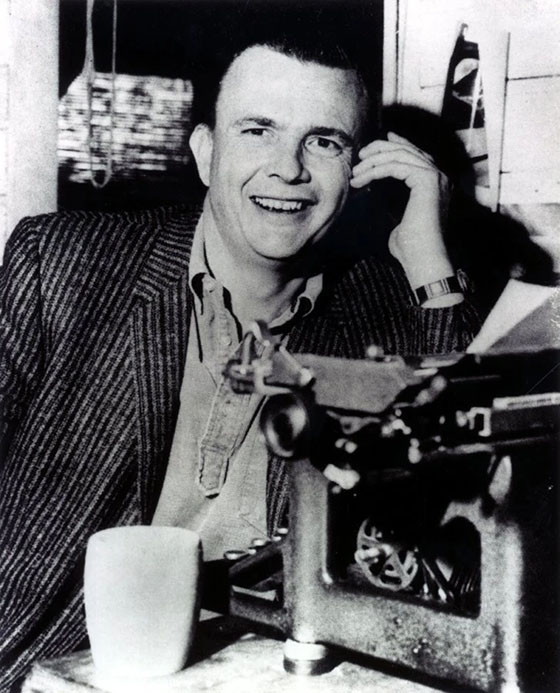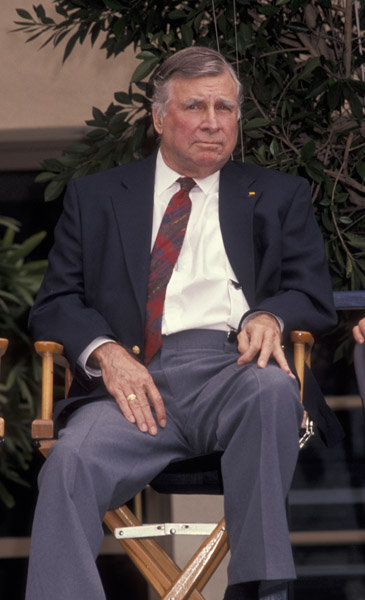
Gene L. Coon
Remembering the original Star Trek's Forgotten Gene, Gene L. Coon (January 7, 1924 – July 8, 1973)...
Coon was the producer of 35 of the original series' 79 regular episodes, and he wrote or co-wrote about a dozen Trek scripts, some credited to his pseudonym Lee Cronin. In his producing role he also performed many uncredited rewrites of other authors' scripts in order to more closely adhere to the vision established by series creator Gene Roddenberry.
Many intrinsic and enduring elements of Star Trek were, in fact, Coon creations, including the Klingons, Khan Noonien Singh, Zefram Cochrane, the Prime Directive, and the universal translator. He's also credited with the official naming of the United Federated of Planets and Starfleet Command.
A talented script doctor, earlier in his career Coon was tasked with converting the one-hour drama Seven Against the Sea, which originally aired on the anthology series Alcoa Premiere, into a weekly half-hour comedy. The result: McHale's Navy. Coon and a partner also suggested a series spoofing The Donna Reed Show. That idea eventually became The Munsters.
Coon wrote for nearly 70 television shows between 1967 and 1974, including Dragnet, Bonanza, Zorro, Peter Gunn, Mr. Lucky, Have Gun- Will Travel, Wagon Train, The Wild Wild West, The Four Just Men, and Combat!.
Coon died in 1973, before Star Trek became a hit in syndication and attained its place in modern mythology. While speaking on the college and convention lecture circuits, Roddenberry began to realize that the most popular elements Star Trek were Coon's, not his. Roddenberry never publicly acknowledged Coon's contributions. Over time, others involved with the series made it a point to highlight Coon's input. An interview referenced by the Memory Alpha fan website quotes series star William Shatner observing:
"In my opinion, Gene Coon had more to do with the infusion of life into Star Trek than any other single person. Gene Roddenberry's instincts for creating the original package are unparalleled. He put it together, hired the people and the concept was his and set in motion by him, but after thirteen shows other people took over. Gene Coon spent a year and set the tenor of the show and there were several other producers who were writer/producers who defined its character. Gene [Roddenberry] was more in the background as other people actively took over."
Shatner was enven more blunt in his Up Till Now autobiography:
"After the first thirteen episodes writer/producer Gene Coon was brought in and Roddenberry became the executive producer, meaning he was more of a supervisor than working on the show day-to-day. After that his primary job seemed to be exploiting Star Trek in every possible way."
A biography of Coon is available in Kindle and audiobook form from Amazon.
Categories: Gene L. Coon, Gene Roddenberry, Lee Cronin, Star Trek, William Shatner
Home KGB on Bluesky KGB on Substack
KGB Stuff Commentwear E-Mail KGB
Donate via PayPal


















